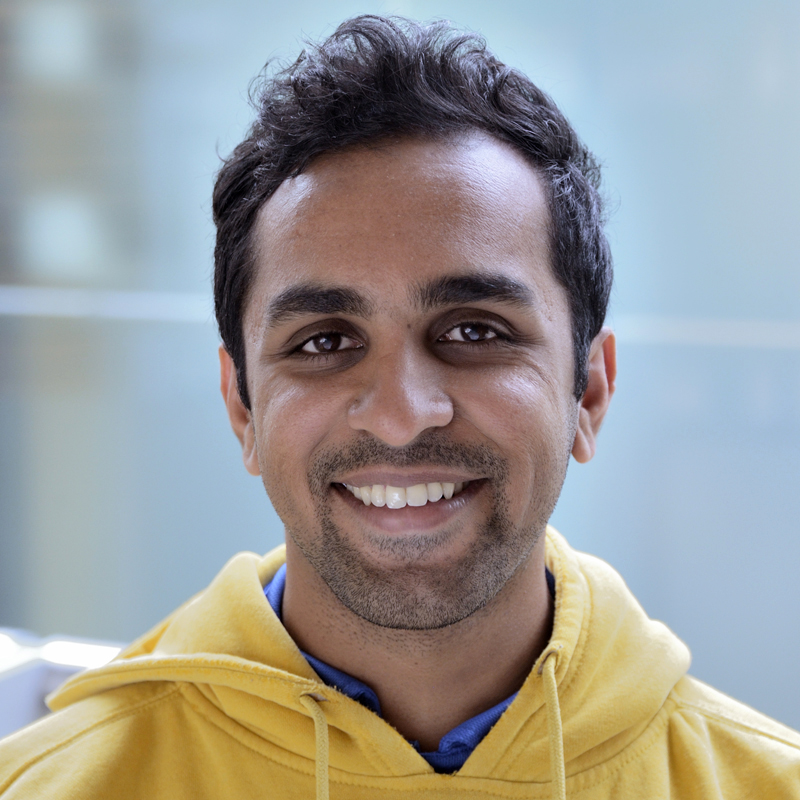
ABOUT ADC
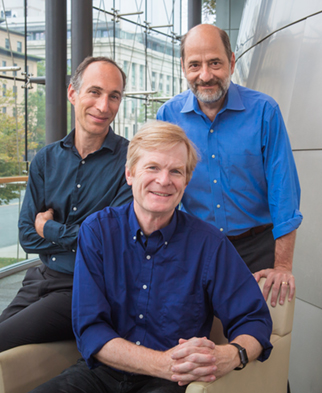
Our aim is to catalogue the key genes implicated in human brain evolution, to analyze their roles in human behavior and cognition, and to study their functions to discover evolutionary mechanisms.
ADC LEADERSHIP
The research goals of ADC will be achieved through a unique multidisciplinary collaboration among the labs of three eminent Principal Investigators, led by ADC Director, Christopher Walsh.
ADC Director
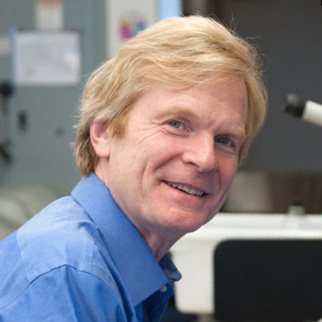
Christopher A. Walsh, MD, PhD
Bullard Professor of Pediatrics and Neurology, Harvard Medical School; Chief of the Division of Genetics and Genomics, Boston Children’s Hospital, Howard Hughes Medical Institute.
Dr. Walsh completed his MD and PhD degrees (with Ray Guillery) at the University of Chicago, neurology residency and chief residency at Massachusetts General Hospital, and postdoctoral training in Genetics at Harvard Medical School with Connie Cepko. In 1993 he became Assistant Professor of Neurology at Beth Israel Deaconess Medical Center, and he has been the Bullard Professor since 1999. He became an Investigator of the Howard Hughes Medical Institute in 2002, and from 2003-2007 served as Director of the Harvard-MIT Combined MD-PhD training program. He moved to Boston Children’s Hospital in 2006, becoming Chief of Genetics.
Dr. Walsh’s research has focused on the development, evolution, and function of the human cerebral cortex, pioneering the analysis of human genetic diseases that disrupt the structure and function of the cerebral cortex by fostering worldwide collaborations with physicians and families. His laboratory has identified genetic causes for more than twenty brain diseases of children, associated with autism, intellectual disability, seizures, and cerebral palsy, and has discovered that some of these disease genes were important targets of the evolutionary processes that shaped the human brain.
The work has been recognized by a Jacob Javits Award from the NINDS, the Dreifuss-Penry Award from the American Academy of Neurology, the Derek Denny-Brown and the Jacoby Awards from the American Neurological Association, the American Epilepsy Society’s Research Award, the Krieg Award from the Cajal Club, the Wilder Penfield Award from the Middle Eastern Medical Assembly, and most recently the Perl-Neuroscience Award from the University of North Carolina. He is an elected member of the American Neurological Association, the American Association of Physicians, the National Academy of Medicine, and the American Association for the Advancement of Sciences.
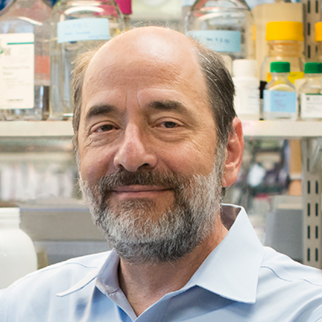
Michael Greenberg, PhD
Dr. Greenberg’s research seeks to understand how neuronal activity controls gene transcription to effect critical steps in synapse and neural circuit development. In addition to providing insight into the process of brain development, this research has contributed to the understanding of neurological diseases in which these processes have gone awry. This work began in 1984 with the discovery that growth factors induce the rapid and transient expression of a family of genes, Immediate Early Genes (IEGs) such as c-fos, whose functions are crucial for neuronal differentiation, cell survival, and adaptive responses. Dr. Greenberg’s recent studies have used genomics to identify neuronal transcripts and cis-regulatory elements that respond to changes in synaptic activity, uncovering an activity-responsive transcriptional program that regulates the complexity of the dendritic arbor, the development of excitatory and inhibitory synapses, the composition of protein complexes at the pre- and post-synaptic sites, and the production of neuropeptides that control neural circuit development. These activity-regulated processes are critical for normal human brain development and function, and defects in the activity-dependent gene program contribute to disorders of human cognition such as Rett Syndrome (RTT) and Angelman Syndrome (AS), two neurological disorders associated with syndromic autism. Dr. Greenberg is particularly interested in those activity-dependent processes that have evolved in humans and contribute to human variation and high cognitive function.
Dr. Greenberg has been the recipient of numerous honors and awards, including membership in both the American Academy of Arts and Sciences and the National Academy of Science. He was the recipient of the Gruber Neuroscience Prize (together with Dr. Carla Shatz), the McKnight Innovation in Neuroscience Award, McKnight Neuroscience of Brains Disorders Award, the Edward M. Scolnick Prize in Neuroscience, the J. Allyn Taylor International Prize in Medicine (together with Dr. Roger Nicoll), the Perl-UNC Neuroscience Prize, the Julius Axelrod Award, a Jacob Javits Neuroscience Investigator Award, the Harold Amos Faculty Diversity Award, and the A. Clifford Barger Award for Excellence in Mentoring.
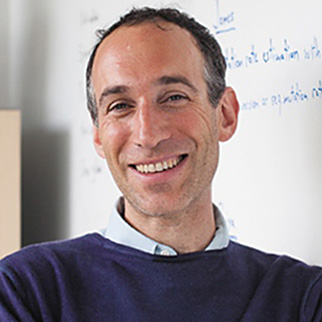
David Reich, PhD
Dr. Reich’s work focuses on studying population mixture, with application to both medical and human history. In medical genetics, he is best known for developing and applying methods to use the history of mixture of populations in the history of African Americans to find genetic risk factors that contribute to health disparities. His laboratory has also developed and applied methods that have also led to the discovery of ancient population mixtures in South Asians (Reich et al. Nature 2009), in Europeans (Lazaridis et al. Nature 2014; Haak et al. Nature 2015; Mathieson et al. Nature 2015; Fu et la. Nature2016; Lazaridis et al. Nature 2016); Neanderthal gene flow into that ancestors of non-Africans (Green et al. Science 2010; Prüfer et al. Nature2014), and archaic “Denisovan” gene flow into the ancestors of present-day Melanesians (Reich et al. Nature 2010; Reich et al. American Journal of Human Genetics 2011; Meyer et al. Science 2012).
Dr. Reich built the first state-of-the-art ancient lab for studying genome-wide human DNA in the United States in 2013, and much of his work at present focuses on using the transformative power of ancient DNA to gain new insight about medical and evolutionary genetics.
ALLEN INSTITUTE & FOUNDATIONS
The Allen Discovery Centers are leadership-driven, compass-guided research centers, often created in partnership with major research organizations and universities. The Allen Discovery Centers are intended as long-term funded research Centers, with the Frontiers Group typically recommending funding at $10 million to a Center for the first four years, with the potential to expand in a second four-year phase with an additional $10 million, matched by partner support, for a potential total scope of activity of $30 million.
About The Paul G. Allen Frontiers Group
The Paul G. Allen Frontiers Group, a division of the Allen Institute, is dedicated to exploring the landscape of bioscience to identify and foster ideas that will change the world. The Frontiers Group recommends funding through award mechanisms to accelerate our understanding of biology, including: Allen Discovery Centers at partner institutions for leadership-driven, compass-guided research; and Allen Distinguished Investigators for frontier explorations with exceptional creativity and potential impact. The Paul G. Allen Frontiers Group was founded in 2016 by the late philanthropist and visionary Paul G. Allen. For more information, visit allenfrontiersgroup.org.
About the Allen Institute
The Allen Institute is an independent, 501(c)(3) nonprofit research organization founded by the late philanthropist and visionary Paul G. Allen. The Allen Institute is dedicated to answering some of the biggest questions in bioscience and accelerating research worldwide. The Institute is a recognized leader in large-scale research with a commitment to an open science model. Its research institutes include the Allen Institute for Brain Science, launched in 2003, the Allen Institute for Cell Science, launched in 2014, and the Allen Institute for Immunology, launched in 2018. In 2016, the Allen Institute expanded its reach with the launch of The Paul G. Allen Frontiers Group, which identifies pioneers with new ideas to expand the boundaries of knowledge and make the world better. For more information, visit alleninstitute.org.
About the Paul G. Allen Family Foundation
For more than four decades the Paul G. Allen Family Foundation has focused on changing the trajectory of some of the world’s toughest problems. Founded by philanthropists Jody Allen and the late Paul G. Allen, co-founder of Microsoft, the Foundation initially invested in community needs across the Pacific Northwest with a focus on regional arts, under-served populations, and the environment. Today, the Foundation supports a global portfolio of frontline partners working to preserve ocean health, protect wildlife, combat climate change, and strengthen communities. The Foundation invests in grantees to leverage technology, fill data and science gaps, and drive positive public policy to advance knowledge and enable lasting change.
PRINCIPLE INVESTIGATORS
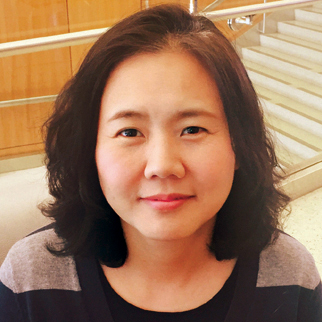
Eunjung Alice Lee, PhD
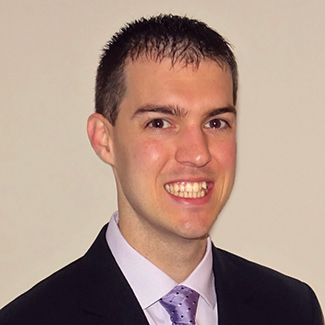
Ryan Doan, PhD
TEAM MEMBERS
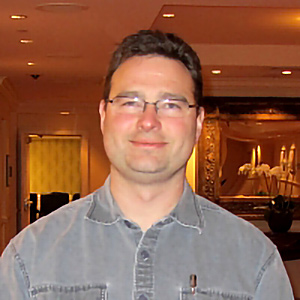
Robert Sean Hill, PhD
Associate Director, Walsh Lab, Division of Genetics & Genomics, Boston Children’s Hospital

